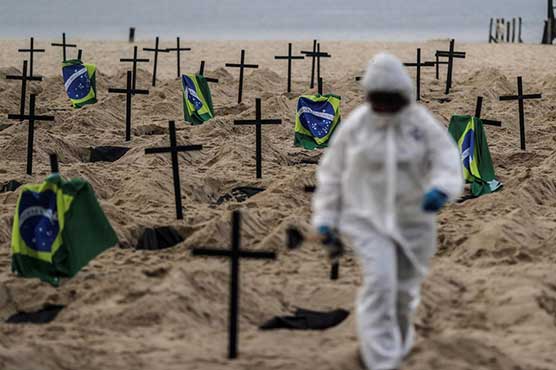Two million virus deaths 'likely' without collective action: WHO

The number of deaths about nine months since coronavirus was discovered in China is nearing 1m.
GENEVA (AFP) - Covid-19 is highly likely to kill more than two million people without relentless global action to combat the disease, the World Health Organization warned Friday.
As the one million death toll looms in a pandemic that has shaken the planet, the WHO said the prospect of another million deaths was not unimaginable if countries and individuals do not come together to tackle the crisis.
"One million is a terrible number and we need to reflect on that before we start considering a second million," the WHO s emergencies director Michael Ryan told a virtual news conference, when asked by AFP if it was unthinkable that two million people could die in the pandemic before a vaccine comes around.
But he added: "Are we prepared collectively to do what it takes to avoid that number?
"If we don t take those actions... yes, we will be looking at that number -- and sadly much higher.
"Unless we do it all, the numbers you speak about are not only imaginable but unfortunately, and sadly, very likely."
The novel coronavirus has killed at least 984,000 people since the outbreak emerged in China last December, according to a tally from official sources compiled by AFP.
Nearly 32.3 million cases of the disease have been registered.
Ryan reflected on the challenges ahead in funding, producing and distributing any eventual vaccines against Covid-19.
"If we look at losing a million people in nine months and then we just look at the realities of getting a vaccine out there in the next nine months, it s a big task for everyone involved," he said.
Two weeks cigarettes
Bruce Aylward, who heads the ACT-Accelerator -- the WHO-led global collaboration to hunt for a vaccine and treatments -- said people would "unnecessarily and unacceptably die" if countries and individuals sit on their hands until a vaccine comes around.
"We should not be waiting," he said.
Two million deaths "should be unimaginable. And it should not be a function of whether or not we have a vaccine. It s a function of whether or not we, as individuals, do our part to prevent transmission of this disease."
WHO director-general Tedros Adhanom Ghebreyesus said the ACT-Accelerator had a funding shortfall of $35 billion -- less than one percent of what G20 countries have committed to domestic economic stimulus packages.
"It s roughly equivalent to what the world spends on cigarettes every two weeks," he said.
"In the context of arresting a global pandemic and supporting the global economic recovery, it s a bargain."
Asked about some leaders in the Americas betting everything on an eventual vaccine ending the pandemic instead of doing more to halt transmission, Tedros warned: "Don t put all your eggs in one basket."
"We have to invest in vaccines but at the same time let s be very serious in using the tools we have at hand," he said, insisting that "you can t save people who are dying today by just praying or working only for vaccines that will come only later."
Forty vaccine candidates are in the various stages of being tested on humans.
A further 149 are being developed in the lab. However, nine in 10 vaccine candidates typically fail.
European surge
WHO figures showed Europe was on course Friday to surpass the 66,277 number of daily cases record set last Saturday.
The UN health agency s Covid-19 technical lead Maria Van Kerkhove said the surge in infections registered across several European countries was partly due to better surveillance.
However, "what is worrying to us is an increase in hospitalisation and an increase in bed occupancy," she said.
In Europe, "we haven t even started our flu season yet, so what we are worried about is the possibility that these trends are going in the wrong direction."

